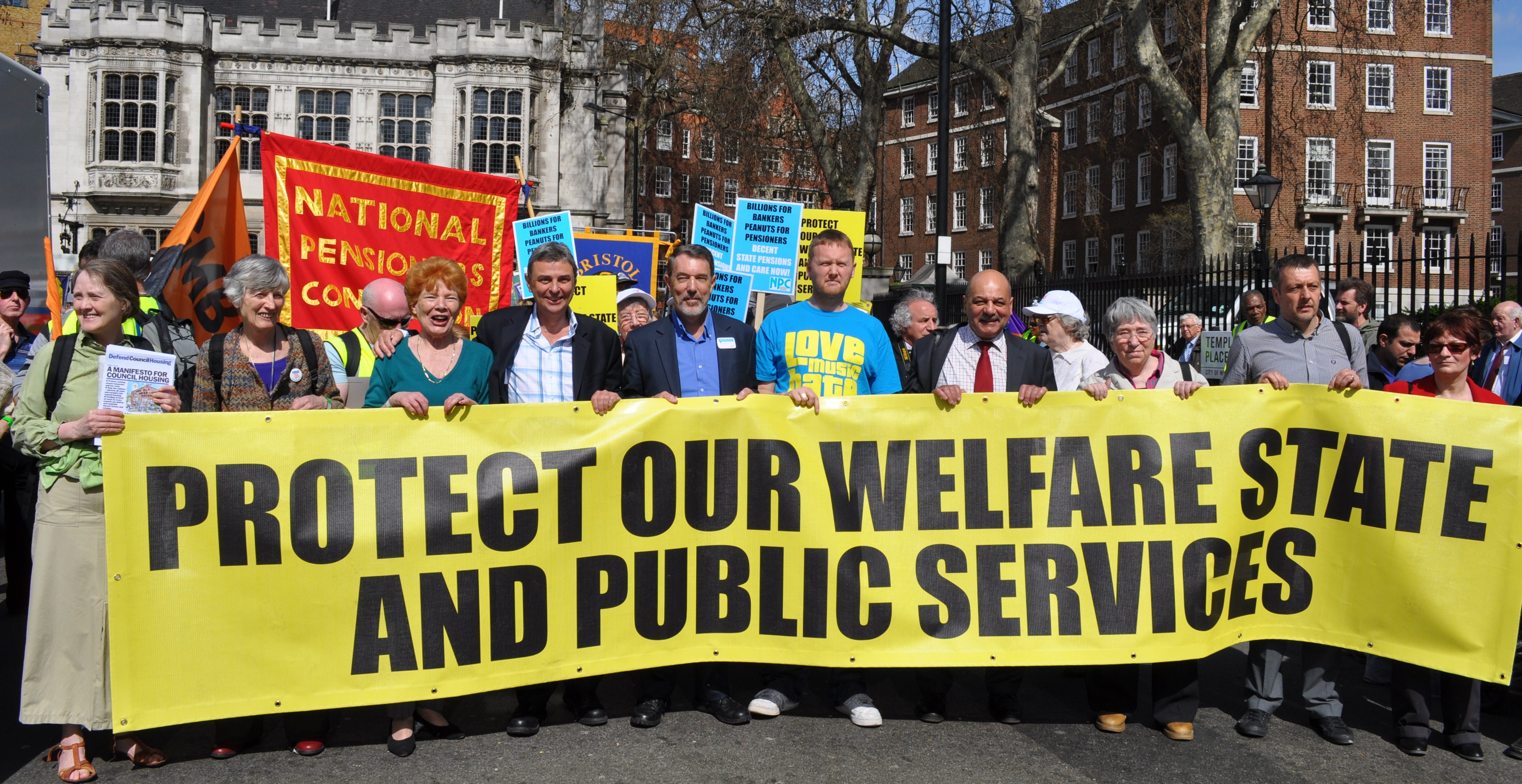Democrat Editorial July-August 2010
ConDem/EU policy is to destroy the public sector and damn the social consequences
ConDem/EU policy is to destroy the public sector and damn the social consequences

There is no need for the planned cuts to be announced by the ConDem Government in October. The real agenda is to take the opportunity of a crisis, talk it up, frighten and kid the public we all have to tighten our belts, this to take the form of lower wages and pensions, working longer, accepting cuts in public services and going along with privatisation of everything in sight.
It boils down to ‘we’ being those who work for their living. As the saying goes the “rich have got richer”. This was detailed by the Sunday Times recently which stated that the richest 1000 people in Britain increased their wealth by 30% in 2009 to £77billion to a total of £333bn. This increase in wealth is coincidentally nearly exactly half the alleged £156bn debt.
In 2006, 54 Britons had a combined fortune of £126bn but only paid tax of £15m. This calculates to an effective tax rate of 0.1%. Compare that with rate of tax paid by a person earning up to £37,400 of 20%.
Unison in its "Save our Services" campaign in June this year pointed out that nearly £78bn a year could be collected by: introducing a 50%tax rate on incomes over £100,000 (£4.7bn) to replace a 40% rate; reforming tax havens and residence rules to reduce avoidance (£10bn); measures to stop reliefs being used disproportionately to subsidise incomes over £1000,000 (£30bn); reintroducing windfall taxes on bankers bonuses (£1.5bn).
Tax Research UK stated in March 2010 that tax dodgers in Britain were costing £123bn per year, made up of avoidance £25bn, deliberate evasion £70bn and uncollected tax £28bn. The latter was made worse by closing 200 tax offices and cutting 20,000 jobs in Inland Revenue and Customs. Tax Research pointed out that a problem faced by Britain was the lack of revenue and not excess public spending.
There are a few other items where money can be saved immediately. Britain could stop paying cash into the EU Budget to the tune of nearly £50bn over the next seven year period. Britain gets nothing in return except orders to do this and that and put up a few blue plaques which wrongly state the EU provided the money. It did not: Britain put up all the money.
Using the crisis as a reason for turning everything that is left in the public sector over to the private sector obeys the orders of EU policies, directives and regulations. These all amount to privatisation dressed up as liberalisation to consolidate the “free market” for the four freedoms of capital, services, goods and labour. In other words let capitalism rip and damn the social consequences.
All this adds up to a frontal attack on all forms of democracy and the fundamental right of Britain to self-determination to run its own affairs. This is exactly the same pattern and agenda being carried out across all EU Member States. Governments in some countries like Greece and Spain have imposed harsher austerity programmes than here in Britain. These programmes have been ordered by the EU and IMF on behalf of the transnational corporations and banks. Brussels now interferes and dictates as to what national budgets can and cannot include.
This is the EU super-state in action, but, national governments do not have to submit budgets.
The crisis has exposed the class nature of affairs not only in Britain but across the EU. It is time to stand up for what is best for working people and act in as many ways as possible to put a stop to the cuts, privatisation and austerity programmes. That entails an understanding of from where these policies emanate and on whose behalf they are put in place.